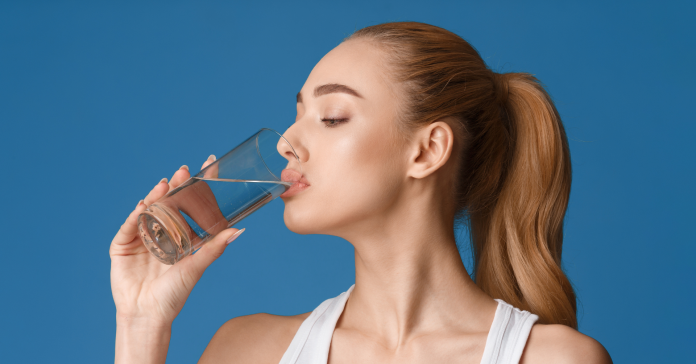Next time you brew a cup of tea or grab a drink from the fridge, ponder whether your favorite beverages are boosting or compromising your health.
Studies reveal that the brain processes liquid calories differently than calories from solid food, potentially leading to unknowingly consuming hundreds of excess calories.Beyond just counting calories, the impact on health varies. Some beverages offer significant health advantages, such as a reduced risk of heart disease and increased longevity. On the flip side, others are associated with issues like obesity, disrupted sleep, and accelerated aging.
1) Water
Water plays a crucial role in regulating temperature, lubricating joints, supporting metabolism, and facilitating waste removal. Despite being the ultimate health beverage, a 2018 survey revealed that 77% of Americans didn’t consume enough water to meet their daily health requirements.
While water is present in various sources like vegetables, fruits, soups, broths, tea, and coffee, consistently sipping it in its pure form throughout the day is vital for overall well-being.
Furthermore, incorporating water into your routine could be the key to weight loss. In a study, individuals who drank two glasses of water before a meal consumed 22% fewer calories. Dehydration is associated with symptoms such as fatigue, dizziness, reduced alertness, and an increase in cortisol, the stress hormone.
Looking for an extra reason to choose water as your go-to drink? Consider sparkling water with a splash of lemon, lime, clementine, or grapefruit for added flavor and effervescence. As long as there’s no added sugar, these fizzy alternatives offer the same benefits as plain water.
2) Tea
Savoring a cup of tea is linked to a range of health benefits, spanning from enhanced cognitive function to a reduced risk of heart disease. Recent research even indicates that tea drinkers tend to have a longer lifespan compared to their non-tea-drinking counterparts.
Tea, particularly green tea, has held a revered status for its medicinal properties for centuries. Green tea is rich in antioxidants and specific plant compounds called catechins, which play a role in combating inflammation, protecting cells from oxidation, and preventing damage from free radicals. Additionally, it contributes to maintaining robust bone health.
It’s advisable to allow your tea to cool slightly before indulging. Research from 2019 suggests that consuming tea at temperatures exceeding 140°F (60°C) is associated with an increased risk of esophageal cancer.
3) Coffee
Your morning coffee not only gives you a caffeine boost but also comes with a host of health benefits. Studies link coffee consumption to a lower risk of dementia, reduced rates of depression, and a decreased likelihood of colorectal cancer. Opting for coffee over sugar-sweetened beverages has also shown to lower the risk of Type 2 diabetes.
4) Alcohol
Indulging in a tipple might contribute to a longer life, as per new research associating moderate alcohol consumption with an increased likelihood of reaching the age of 90.
The connection between alcohol and longevity remains somewhat mysterious. Some theories propose that specific alcoholic beverages, like red wine, contain plant compounds with potential cardio-protective properties. Additionally, the act of enjoying a drink might have stress-alleviating effects.
However, it’s crucial to note that the health benefits are tied to moderate drinking—defined as one drink per day for women and two drinks per day for men. The research also emphasized that binge drinking is linked to a shorter lifespan.
5) Syrup-Infused Coffee Beverages
Those comforting vanilla lattes or caramel macchiatos that help you power through the afternoon slump might be disrupting your sleep.
According to a 2020 study published in the journal Sleep Health, women who consumed at least one high-calorie coffee drink daily reported lower sleep quality compared to those who abstained from sugary coffee beverages.
While caffeine is widely recognized as a stimulant that can interfere with sleep, the combination of sugar and caffeine may also impact circadian rhythms.
In conclusion, if you’re experiencing sleep difficulties, cutting out sugary, high-calorie coffee drinks could potentially alleviate insomnia.
6) Juice
While fruit juice may boast vitamin C and potassium, it’s laden with sugar, often rivaling soda in calorie content. Despite the natural sugar in fruit juice, research published in JAMA Open Network suggests that the body metabolizes it similarly to added sugars found in soda. The negative health impacts, including weight gain and an elevated risk of Type 2 diabetes, cardiovascular disease, and all-cause mortality (the risk of dying from any cause), outweigh the modest nutritional benefits.
Opting for whole fruits instead of fruit juices is recommended. The fiber in whole fruits allows for a slower absorption of sugar, preventing blood sugar spikes associated with fruit juice. Additionally, the fiber helps you feel full for a more extended period.
7) Diet Soda
Despite being a zero-calorie beverage, diet drinks have been associated with significant health risks. Research links them to weight gain, an increased risk of Type 2 diabetes, dementia, and even premature death. Recent data specifically connects sucralose, the artificial sweetener in diet soda, with carbs, increasing the risk of metabolic syndrome—characterized by higher blood sugars, elevated blood pressure, and weight gain.
The drawback of diet soda lies in its artificial chemicals and colorings, lacking any nutritional value. Some diet sodas include sugar substitutes, such as xylitol, maltitol, and sorbitol, which can ferment in the digestive tract, causing gas, bloating, and abdominal pain.
Moreover, excessive consumption of diet soda may reduce water intake, potentially leading to dehydration.


